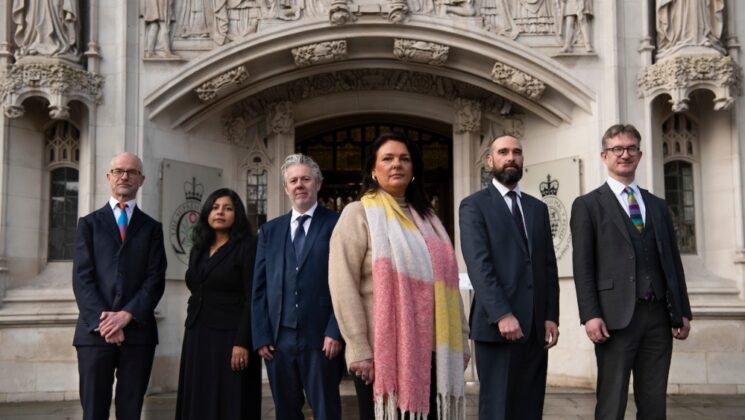The Supreme Court has an opportunity to close a loophole that allows rogue employers to mistreat staff who take part in legal strike action.
In a two-day hearing that begins on Tuesday 12 December, the union seeks to overturn a Court of Appeal decision that it says leaves the UK operating outside international law and employees without proper protection at work.
The union is acting on behalf of care worker and UNISON member Fiona Mercer, who originally brought a case in 2019 against the Alternative Futures Group (AFG), a charity in north west England.
While UK law prevents employers from sacking workers involved in strikes or other workplace disputes, it does not stop unscrupulous employers from taking disciplinary action or generally making life difficult, says the union.
Fiona had been part of a dispute over AFG’s plans to cut payments to care staff working sleep-in shifts. As a result, she was suspended by the charity and prevented from attending work or contacting her colleagues during a period of strike action.
Her case against AFG eventually went to an employment appeal tribunal (EAT). That found in her favour and said she should not be treated unfairly for having taken part in industrial action. The EAT also amended UK law, creating a new protection for striking workers, to comply with international law.
However, the then business secretary Kwasi Kwarteng intervened by taking the case to the Court of Appeal, which then reversed the EAT decision in March last year. UNISON said this meant bad employers had little to stop them mistreating workers who strike and the union appealed to the Supreme Court.
UNISON general secretary Christina McAnea said: “It’s time for this glaring legal loophole to be fixed.
“Workers shouldn’t face punishment for protesting about their employer’s behaviour. They choose to strike only as a last option.
“Employees in the UK already face some of the most restrictive union laws in Europe, with the government increasingly trying to limit their rights at every turn.
“Anyone with a legitimate dispute should be able to exercise their rights without worrying they’ll be treated unfairly. The Supreme Court can bring the UK back in line with international law and offer much-needed protection to UK workers.”







